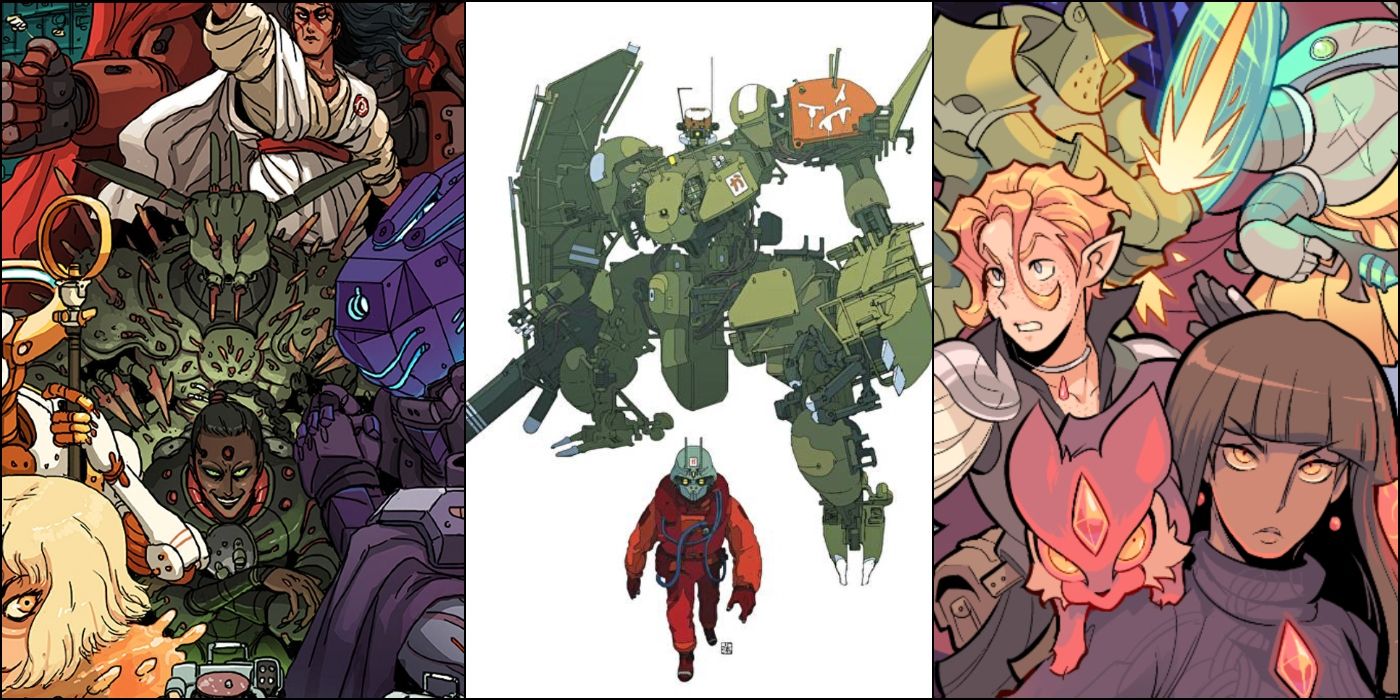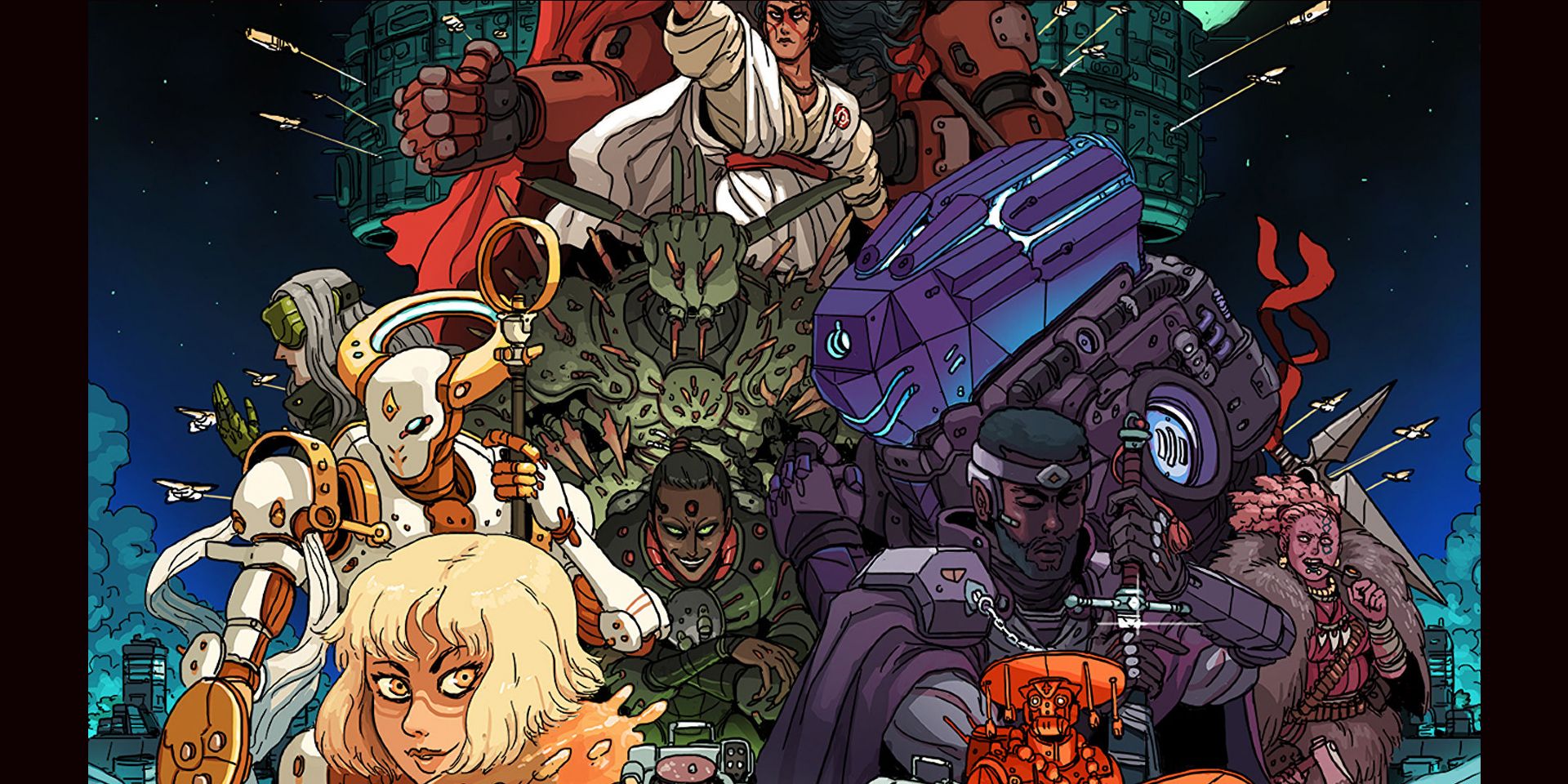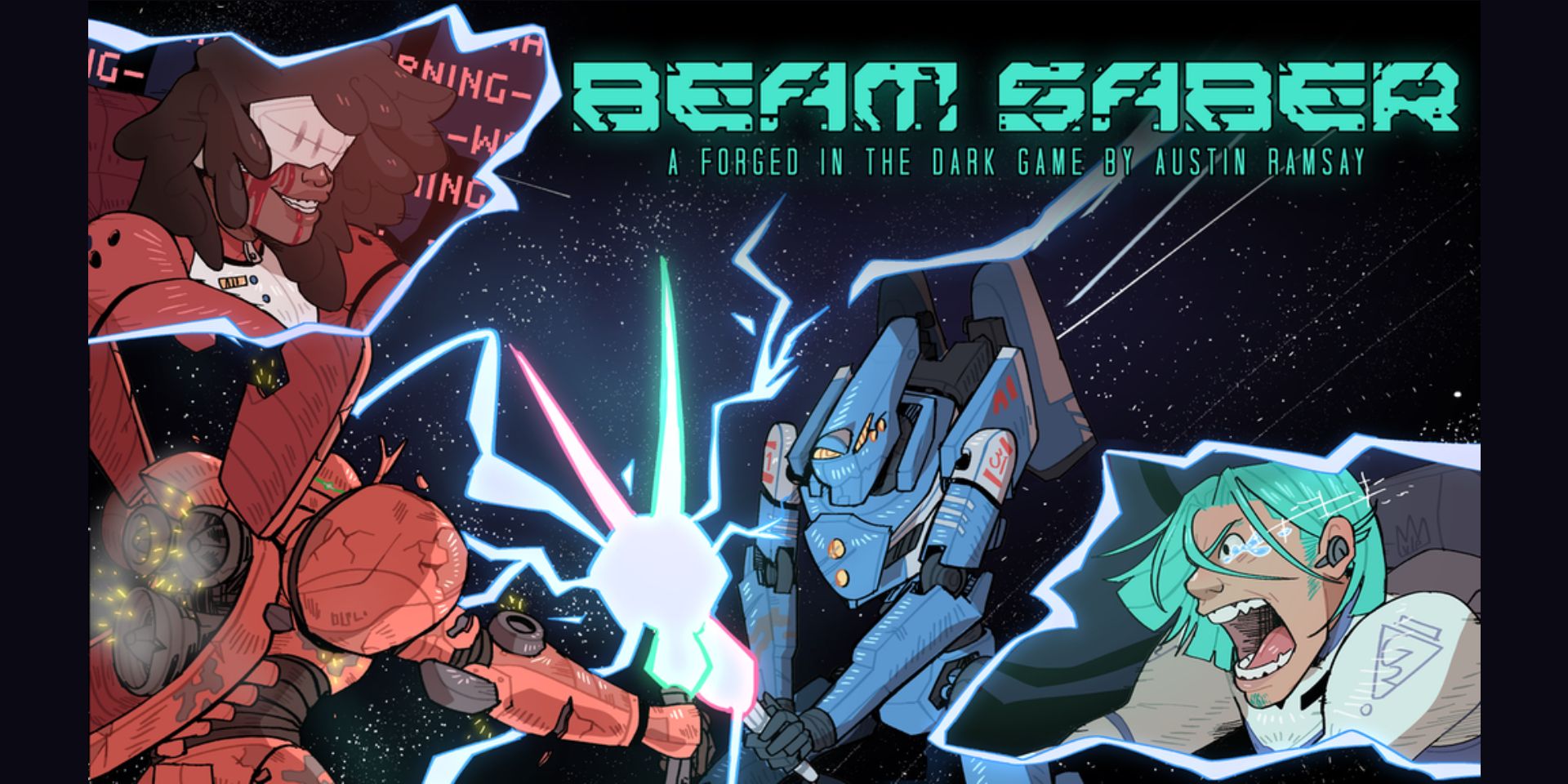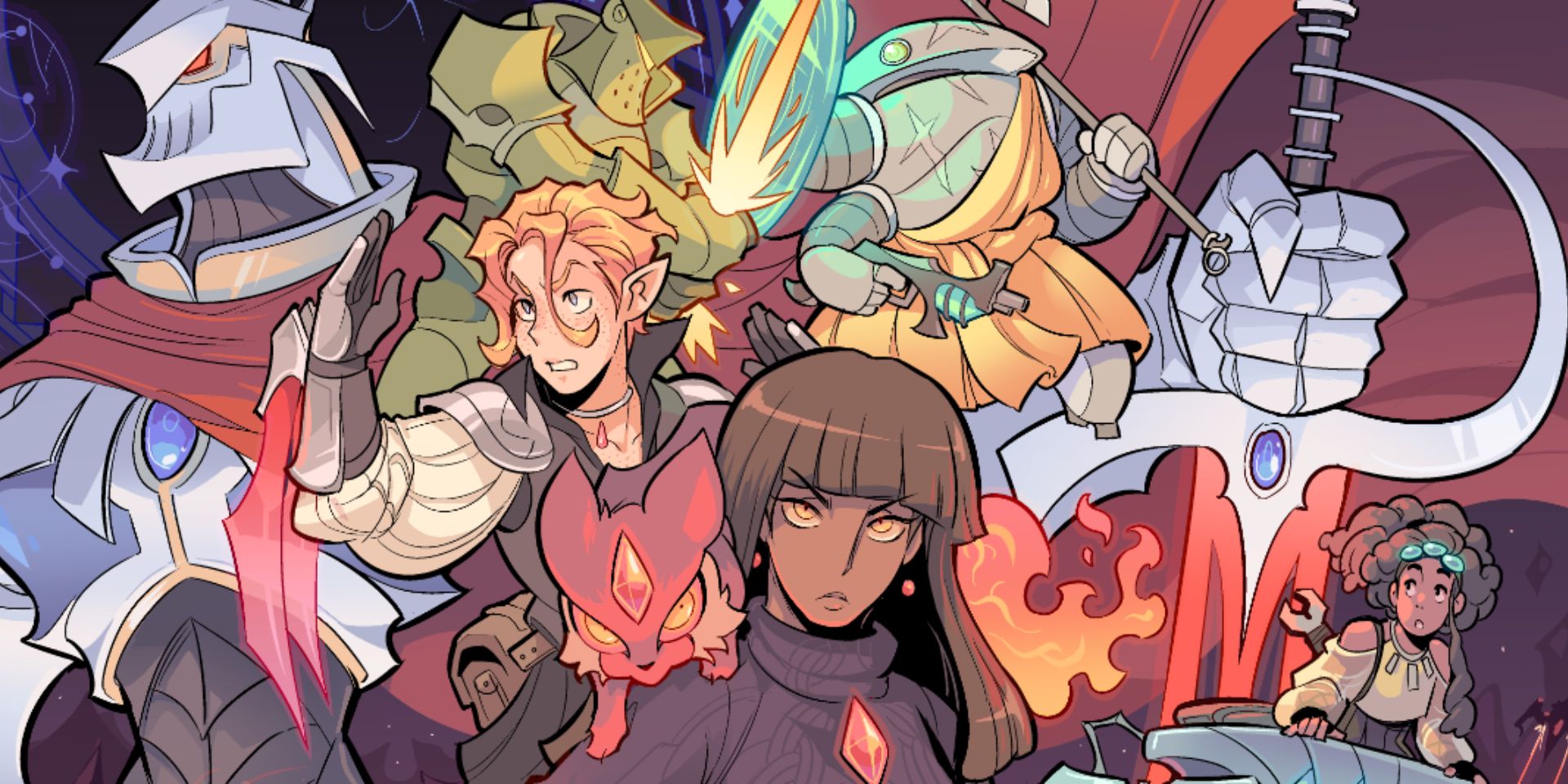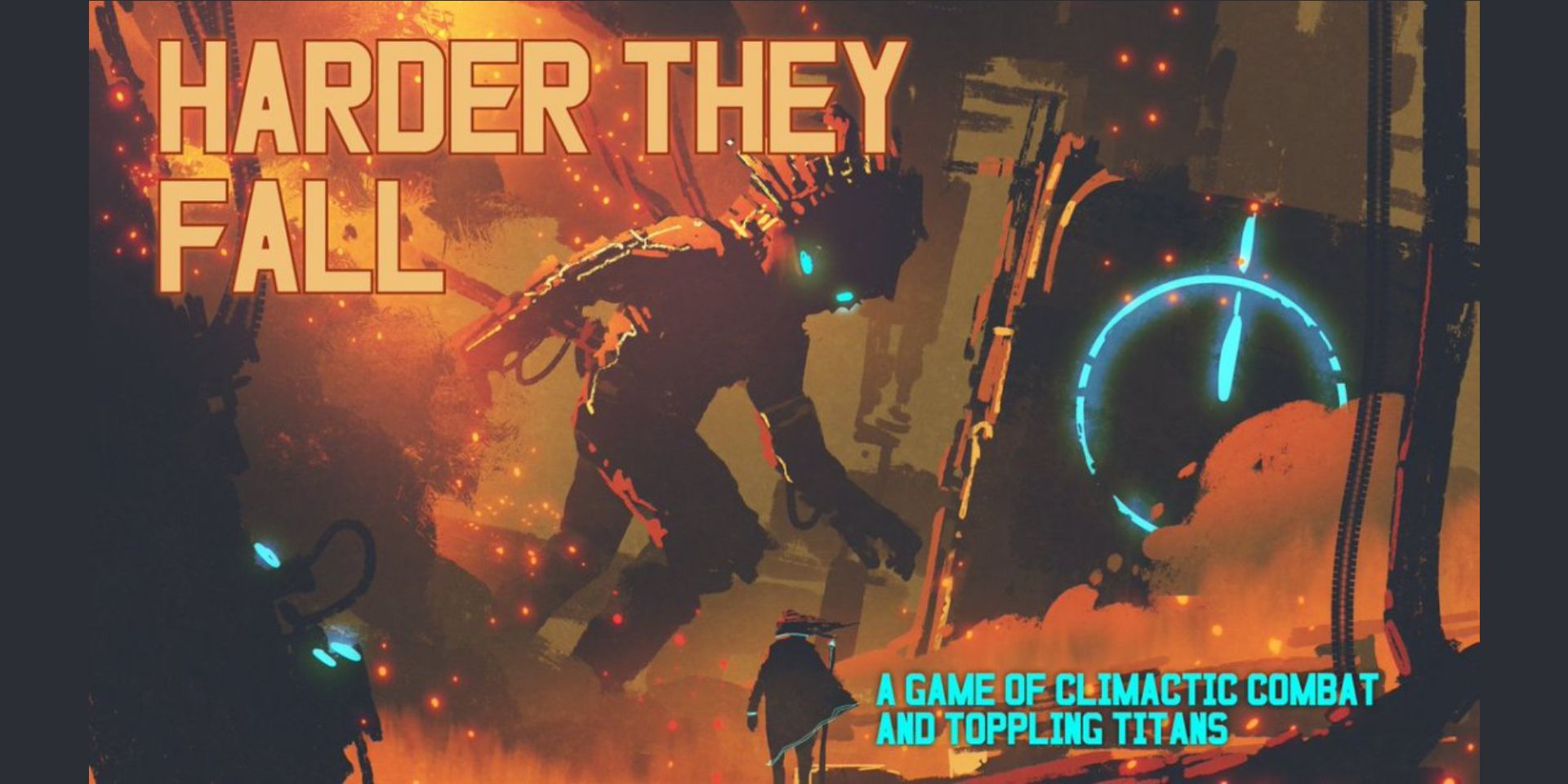Currently, there aren't many tv shows, cartoons, or movies on the air about "Mechas" – that is, powerful giant robots controlled by heroic pilots. Under the radar, however, groups of game developers have been publishing creative, narrative-focused indie tabletop games inspired by works such as Pacific Rim or Mobile Suit Gundam, using the unique tropes of the "Mecha genre" to tell surprisingly emotional, character-focused stories about transhumanism, gender, sexuality, politics, and emotional relationships. They also tell stories about how stomping around in a giant robot battle suit and smashing stuff is cool, as is only fitting.
To count as a "Mecha Narrative," a book, TV show, movie, or game needs to have giant, armored robots, generally controlled by skilled pilots. Additionally, these giant robots must be central to the plot of the story in some way, usually because their power is the only way to protect a world or nation from an invading threat. Outside of this criteria, a "Mecha Narrative" can take nearly any form and tone – optimistic stories like Pacific Rim or Power Rangers about mechanized "Mecha" superheroes defending the world from Kaiju, or more cynical dramas like Mobile Suit Gundam, Titanfall 2, or Battletech, where "Mechs" are just another machine in the armory of a nation at war. Some stories even blend the Mecha genre with the fantasy genre, featuring archaic-looking machines powered by magic, which neatly side-steps the whole "Square Cube Law" that makes most fictional Mecha designs implausible in real life.
Mecha tabletop games like Battletech, Mekton Zeta, and Jovian Chronicles have been around since the 1980s, catering to fans of the Mecha genre with complex rules for creating and customizing mech pilots and their machines. The following modern Mecha RPGs, created by indie developers, use more narrative-focused, "low-crunch" rules mechanics to make their gameplay accessible to newcomers and expand the scope of their story-telling to focus on the feelings, personalities, and identities of the Pilots who control Mechas. This strange renaissance in Mecha storytelling, in many instances, was catalyzed by the COUNTER/Weight RPG podcast hosted by the Friends At the Table gaming group, a mind-blowing sci-fi epic with an iconic slogan that sums up the essence of the Mecha genre: "We could have made them look like anything, but we made them look like us."
Mecha Tabletop Games: Lancer
Published by Massif Press, Lancer: First Edition is a "mud and lasers" sci-fi RPG set in a distant future where humanity finally set out from Earth across the stars after recovering from a massive climate catastrophe. The interstellar hegemony known as Union works to spread its utopian values across human space through diplomacy, economics, and future-predicting supercomputers buried under the surface of Mars, and their ambitious, far-reaching mission brings them into conflict with rival star nations, interstellar "Corpro-States," rogue AIs, paracasual gods, and internal factions who would rather build Utopia through naked conquest.
In-between these different fronts of conflict walk the "Lancers," elite mech pilot PCs who take on the most difficult missions. Lancer's mythic sci-fi Mecha stories are crafted through loose narrative mechanics when PCs are walking around on foot, and more complex, turn-based tactical rules when they "mount up" in their customized chassis (generally the size of mechs from the Titanfall series). A free app called Comp/Con automates many of Lancer's rules for creating characters, customizing mechs, and figuring out the results of dice rolls, making what would normally be a complex rule system easy to use for new players.
Mecha Tabletop Games: Beam Saber
Beam Saber, built off the "Forged In The Dark" roleplaying rules seen in the heist RPG Blades In The Dark, is a narrative system for telling gritty military stories of Mecha pilots trying to survive a grueling, endless war. In a session of Beam Saber, players define their pilot characters using special Playbooks centered around character archetypes such as the Ace, Bureaucrat, Empath, Hacker, or Envoy, while Squad Sheets let players define the objectives, methodology, resources, and headquarters of their affiliate organization.
Mech creation is a simple process where players give their "Vehicle" a list of unique "Quirks" that augment certain actions during combat and can be supercharged at the risk of breaking down. Heavily inspired by the Mecha-themed COUNTER/Weight RPG podcast, Beam Saber was actually used by the Friends At the Table gaming group as the core system for their Partizan campaign, a sequel podcast to COUNTER/Weight.
Mecha Tabletop Games: Armor Astir Advent
Armor Astir Advent, built off the "Powered By The Apocalypse" roleplaying system, is a Fantasy Mecha RPG where "Astirs" and other walking machines of war are powered by magic and mana, a la The Vision of Escaflowne. The narrative-focused mechanics of Armor Astir: Advent are designed to evoke stories of rebellion and resistance, with both the players and the "Master Of Ceremonies" collaborating in Session Zero to design a heroic "Cause" and an oppressive "Authority" they oppose.
Characters Playbooks include "Channeler" Pilot archetypes such as the Arcanist, Imposter, or Witch, along with Support playbooks that let players take on the role of non-combat heroes such as the Captain, Artificer, or Diplomat. Armor Astir Advent is yet another narrative RPG used by the Friends At The Table gaming group, specifically for a prequel one-shot game set in the backstory of their Partizan sci-fi campaign.
Mecha Tabletop Games: Harder They Fall
The narrative RPGs listed above generally treat their Mechas as military machines, produced in large numbers for a nebulous war effort. Harder They Fall, published by UFO Press, is a narrative RPG better suited for Pacific Rim-type stories of massive, novel giant robots facing off against Kaiju...or any other narrative in which titanic, looming gods tear apart a city as they fight.
Rather than using dice, the rules of Harder They Fall uses dominos to determine success and failure. Players simulate battle between themselves and NPC threats by building chains of dominos over a map of their battlefield, the pips and placement of the dominos they draw determining whether their characters advance courageously, fall back in doubt, or recklessly raise the stakes of their battle. Players commit to an irrevocable attack, gambit, or sacrifice by knocking down their domino chain and the chains of others, a brilliant mechanic that evokes the image of collapsing skyscrapers, crumbling bridges, and explosions so often seen in Mecha movies, Kaiju movies, and superhero films like The Avengers.

